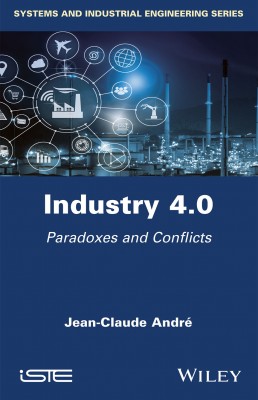
Digital technology opens up extraordinary fields for applications that will deeply change the nature of jobs and trade, the very concept of work and the expectations of user–producers. The “masters of algorithms” have disrupted production and services, and this trend will continue for as long as electric energy and the elements of Industry 4.0 are in continued development. Beyond data control, a power struggle is working its way through the links in the value chain: intermediation, control of resources and command over human and physical networks, as well as partnerships, creativity and the political system.
Industry 4.0: Paradoxes and Conflicts examines the need for a serious and technological review, as well as for research and training regarding citizenship and politics. This is a new situation in terms of relationships of competence and authority, which must be the subject of scientific as well as political reflections for the whole social body, which needs to be educated about choices.
Throughout the book, the author poses the following question: instead of submitting to choices, would it not be better to exercise foresight?
1. Industry 4.0: Definition and the Acceleration of Innovations.
2. Disciplinary Boundaries.
3. Technical Progress and Quality of Life at Work.
4. Elements of Foresight and Possible Effects of Conceivable Scenarios.
5. What Can Be Done?
Jean-Claude André is a process engineer and has a PhD in Chemical-Physics, as well as a French Doctorate in Physics on the subject of light–matter interactions (photochemical engineering, chemical-physics, and signal processing and modeling additive manufacturing, which is a component of Industry 4.0).